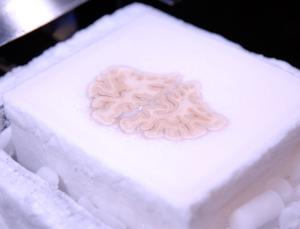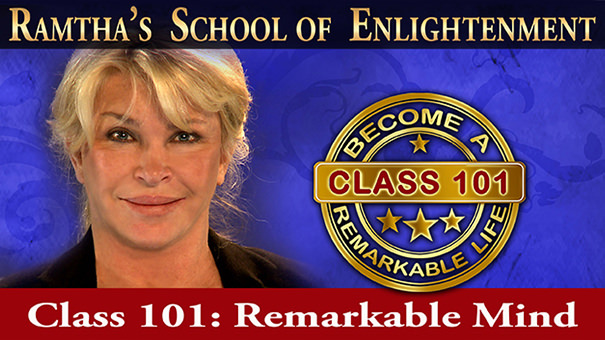Hippocampus is focus of most famous studied brain –
Ramtha’s teachings on role of the hippocampus

“A slice of knowledge”
Photo credit: Diego Mariscal
– “Neuroscience’s most famous brain is reconstructed”
“The brain that made the greatest contribution to neuroscience and to our understanding of memory has become a gift that keeps on giving. A 3D reconstruction of the brain of Henry Molaison, whose surgery to cure him of epilepsy left him with no short-term memory, will allow scientists to continue to garner insights into the brain for years to come.”
“When Molaison’s operation took place, many researchers believed memory was stored throughout the brain.
Molaison provided the first evidence that memory was somewhat confined to the hippocampi and surrounding anatomy. However, because he was still able to learn new skills – albeit without remembering that he’d been practising – Molaison provided evidence that “procedural memory”, as it is known, must be located outside the hippocampi,” quoting Helen Thomson in New Scientist.
Read more
– UPDATE: August 21, 2014
“This Is Your Brain on Silence”
“Contrary to popular belief, peace and quiet is all about the noise in your head.”
“Conditions like dementia and depression have been associated with decreasing rates of neurogenesis in the hippocampus. If a link between silence and neurogenesis could be established in humans, she says, perhaps neurologists could find a therapeutic use for silence.”
“To her great surprise, she found that two hours of silence per day prompted cell development in the hippocampus region of the brain.”
By Daniel A. Gross, Nautilus.
Read more
– UPDATE: October 9, 2014
“Manipulating memory with light: Scientists erase specific memories in mice”
“Neuroscientists have used light to erase a specific memory in mice, showing how the hippocampus and cortex work together to retrieve memories.”
From the University of California, Davis.
Read more
– UPDATE: October 23, 2014
“If you’re over 60, drink up: Alcohol associated with better memory”
“For people 60 and older who do not have dementia, light alcohol consumption during late life is associated with higher episodic memory — the ability to recall memories of events — researchers report, “quoting the University of Texas Medical Branch at Galveston, Science Daily.
Read more
– UPDATE: November 13, 2014
“Want a better memory? Here’s what science says you should do.”
By Susannah Locke, Vox.com.
Read more
– UPDATE: November 28, 2014
“Scientists pinpoint chemical link between sleep and memory formation”
“It’s been more than a hundred years since scientists discovered that sleep is connected to the formation of memories in our brains, and now, new research is finally revealing why,” quoting Science Alert.
Read more
– UPDATE: February 5, 2015
“Research is increasingly showing that your memories are not fixed. Rather, they can be weakened or strengthened by later events. In a study conducted at New York University, participants watched photos of objects (tools or animals) and categorized each accordingly,” quoting Dr. Mercola.
Read more
– UPDATE: April 29, 2015
“How the brain tells good from bad”
“Neuroscientists identify neurons in the amygdala that assign emotions to experience.”
By Anne Trafton, MIT News Office.
Read more
Ramtha’s detailed teachings on the hippocampus go back 2 decades.
– STUDY OF THE ENERGY BANDS AND CENTERS
“The amygdala and hippocampus are both glands that are located near the midbrain. They are both involved in laying down long-term memory in bits of information that when activated can activate long-latent neuronets in the neocortex to bring up and re-remember long-time memories into present states of being. They are also dynamically involved in thoughts that are split between genders of male and female.”
– Ramtha
Yelm, WA.
Beginning Retreat Level 2
August 13, 1996
– COMING TO CRITICAL MASS
“Whatever you think holographically turns on which gland of the amygdala, the hippocampus? Which of those retain long memory? The hippocampus. And why? Because it holds the long memory of thought. The hippocampus releases neuropeptides in the brain that enact the exact drama happening in the frontal lobe. When they are released, those peptides mimic the frontal lobe of the brain’s holographic thought.
You have the thought, then the hippocampus releases the chemicals that match the thought, and the thought came from the firing of the neurons in the brain. That is information. Why does it do that, long-term memory? Because the only thing that it knows how to do is to reinforce what is already known to the body, and the body then gets all of those neuropeptides from the hippocampus through the bloodstream. The hippocampus is a ductless gland of the limbic system, the emotional body. And every cell gets the neuropeptides when they are dumped into the bloodstream. Why is that important? Because every cell needs to know exactly what your commands are in the frontal lobe.”
– Ramtha
Introduction
– THE OBSERVER — PART I
“ATP is a peptide that flows from the hippocampus through the limbic system to the adrenals. ATP causes the adrenal cortex to deliver steroids to the body which gives you the high of redemption. That is where the energy comes from. Adrenaline is instant energy in the body. ATP is necessary to give that high or that energy not only in emergencies but in continual use in the body.”
_ Ramtha
Yelm, WA.
February 20-28, 1998
Primary Retreat
– DO YOU HAVE A PLAN?
“When you move to a new neighborhood something really remarkable happens in associative memory in the hippocampus — it breaks its connection to the past in twenty-one days. It binds the new associations. What fires together wires together. It is wiring the architecture of the neighborhood. The hippocampus is wiring the brain totally differently into the remarkable because the new neighborhood is inclusive of the remarkable.”
– Ramtha
Yelm, WA.
May 19, 2012
Ramtha World Event Workshop 2
Click here to purchase the DVD form this event.



